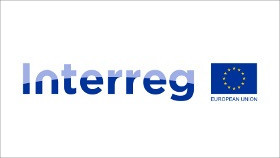
Interreg

(updated on 26 January 2025)
The European Union promotes cooperation between regions and countries in order to support their economic and social development and overcome the barriers created by borders.
This European Territorial Cooperation (Interreg) is divided into four areas:
- cross-border (Interreg A),
- trans-national (Interreg B),
- interregional (Interreg C),
- outermost regions’ cooperation (Interreg D).
Interreg is financed by the European Regional Development Fund (ERDF). Interreg’s total budget in the funding period from 2021 to 2027 is almost EUR 10 billion. During this funding period, Interreg is pursuing seven policy objectives to implement EU priorities across borders:
- A more competitive and smarter Europe
- A greener, low-carbon transitioning towards a net zero carbon economy and resilient Europe
- A more connected Europe
- A more social and inclusive Europe
- Europe closer to citizens
- A better Cooperation governance
- A safer and more secure Europe
Interreg A (cross-border cooperation)
Interreg A supports cooperation between NUTS III regions (i.e. regions with a population of between 150,000 and 800,000 inhabitants) from at least two different Member States that are located directly on the border or adjoining it. It aims to tackle common challenges identified in the border regions and exploit the untapped growth potential in the border regions, while reinforcing the process of cooperation for the harmonious overall development of the Union. Interreg A’s budget for the funding period from 2021 to 2027 comprises EUR 6.7 billion and 49 programmes.
Bavaria participates in the following three Interreg A programmes:
- Germany/Bavaria-Czech Republic (Bayern-Tschechien)
- Austria-Germany/Bavaria (Bayern-Österreich)
- Germany-Austria-Switzerland-Liechtenstein (Alpenrhein-Bodensee-Hochrhein)
Interreg B (trans-national cooperation)
Interreg B, known as trans-national cooperation, allows cooperation in larger transnational areas or in maritime areas. A project includes national, regional and local programme partners from at least three different states, two of them from EU Member States, but also in some non-EU countries, such as Iceland or Liechtenstein, enlargement and neighbourhood partner countries and overseas countries and territories, in order to achieve a higher degree of territorial integration. Like all Interreg programmes, it aims to promote better trans-national cooperation within the designated regions in order to find efficient solutions to common territorial, economic and social challenges that are too extensive to be tackled efficiently at national level. Interreg B’s project investments contribute in particular to the following objectives:
- Innovation, especially networks of universities, research institutions and SMEs
- Environment and climate change, especially sustainable green and blue economy, water resources and flood management
- Digital connectivity and sustainable transport
- Sustainable regional development, especially in terms of education, labour markets and cooperation
- Cultural heritage and sustainable tourism development
- Capacity building and governance
- People-to-people actions and engagement.
In the funding period from 2021 to 2027, Interreg B’s budget is close to EUR 1.5 billion, see https://ec.europa.eu/regional_policy/en/policy/cooperation/european-territorial/trans-national.
Bavaria participates in the following Interreg B programmes:
- Alpine Space
- Danube Region
- Central Europe
- North West Europe
Interreg C (Interregional cooperation)
Interreg C, the interregional cooperation, operates at pan-European level and covers all 27 EU Member States. It aims to improve regional governance through capacity building. A project consists of programme partners from at least three different countries, two of which must be EU Member States. Norway and Switzerland are participating in the programmes with their own funds. Interreg C builds networks to develop best practices and facilitate the exchange and transfer of experiences of successful regions. They show what regions are doing well for the benefit of those who are still investing.
For the period 2021-2027, four programmes will continue under Interreg C:
- Interreg Europe
- Interact
- URBACT
- ESPON
Bavaria participates in all four Interreg C programmes. In addition to the 27 EU Member States, Norway and Switzerland also participate in Interreg Europe, Interact and URBACT. In addition to Norway and Switzerland, ESPON also includes Lichtenstein and Iceland.
Interreg C has a budget of more than EUR 550 million.
Interreg D (outermost regions’ cooperation)
The 2021-2027 funding period recognises the specificities of the outermost regions through a specific cooperation (Interreg D). It helps these regions to cooperate with their neighbouring countries and territories in the most efficient and easy way possible. Calls for proposals can be launched for combined financing under the ERDF and the Neighbourhood, Development and International Cooperation Instrument (NDICI) established by a Regulation of the European Parliament and of the Council.
Interreg D includes 4 geographical areas:
- Amazonia “Plateau des Guyanes”/Caribbean Space
- Mid-Atlantic/Gulf of Guinea (MAC)
- Indian Ocean
- Mozambique Channel
Interreg D has a budget of over EUR 280 million. However, Bavaria does not participate in Interreg D.
Further information on Interreg on the Web
Website of the European Commission on Interreg
Website of the European Comission on Interreg A
Website of the European Commission on Interreg B
Website of the European Commission on ERDF
Information on Interreg projects supported by BayFOR
Contact at BayFOR
We provide advice tailored to our areas of expertise. To ensure you are directed to the right person, we recommend contacting the team best suited to your project.
Health Research & Biotechnology
Information & Communication Technologies | Engineering & Natural Sciences
Social Sciences and Humanities | Security and Defence Research
Environment, Energy & Bioeconomy
SME Advisory Services




